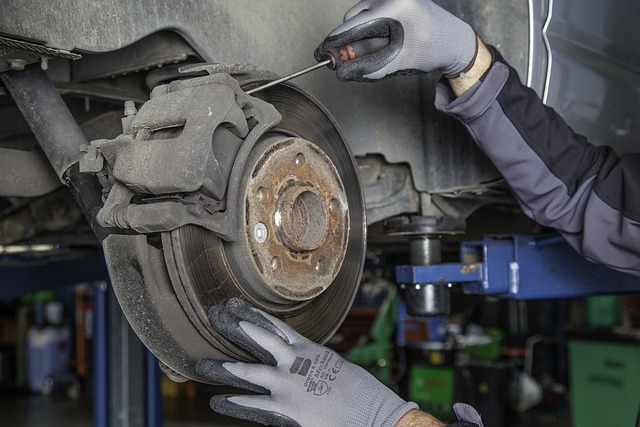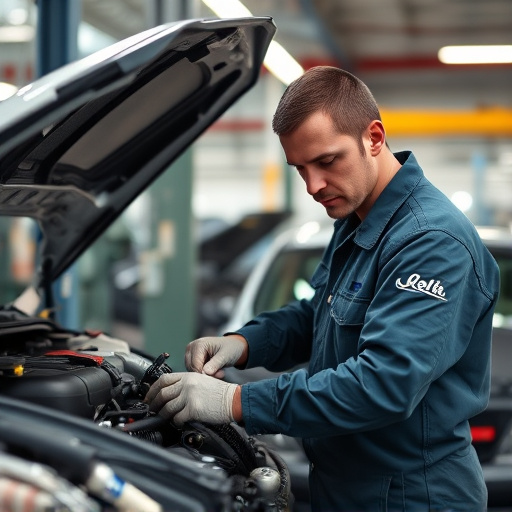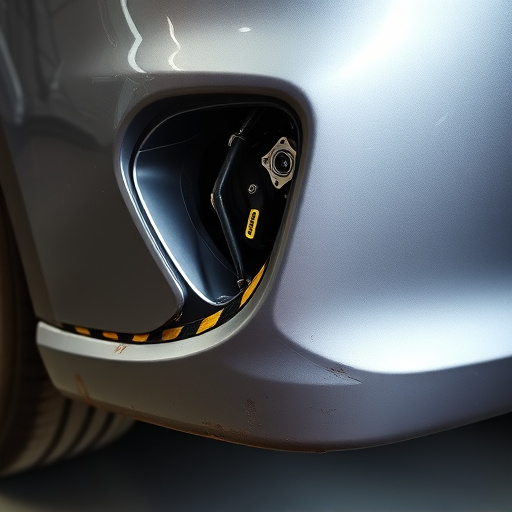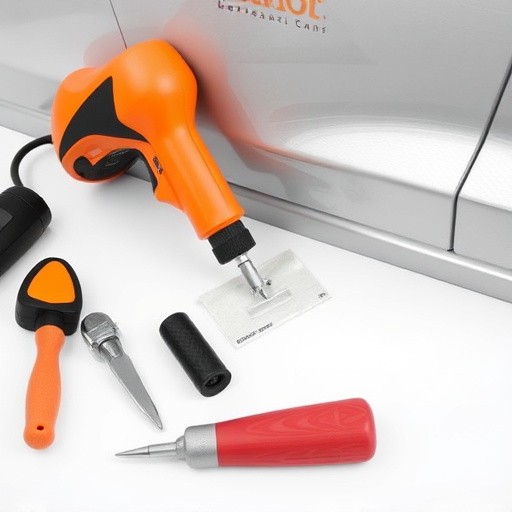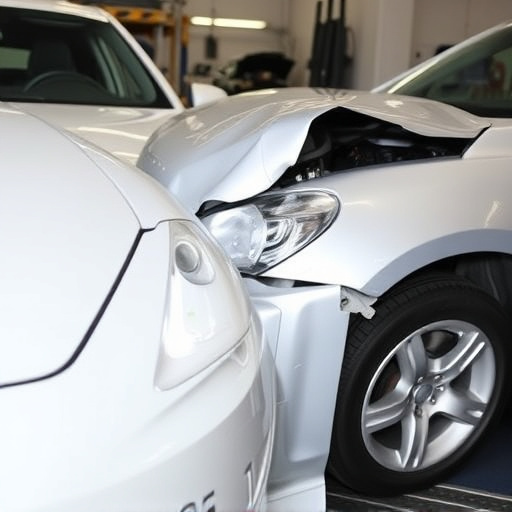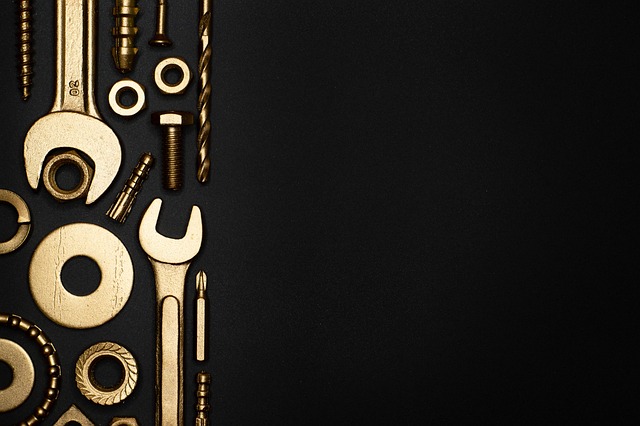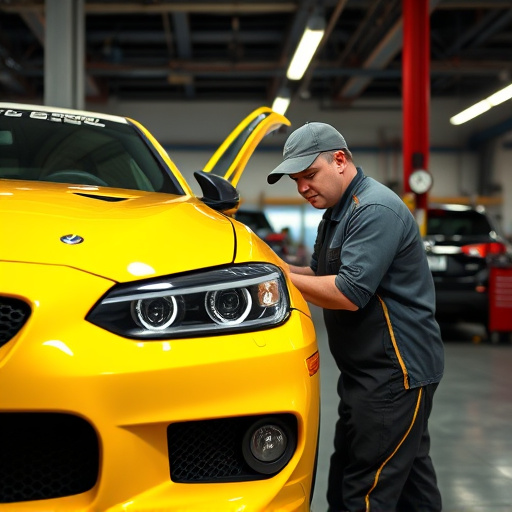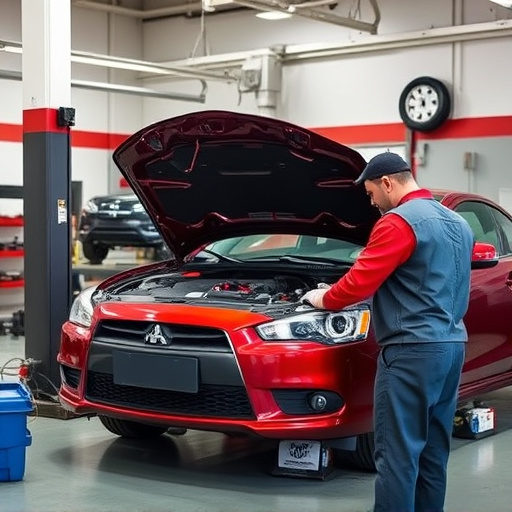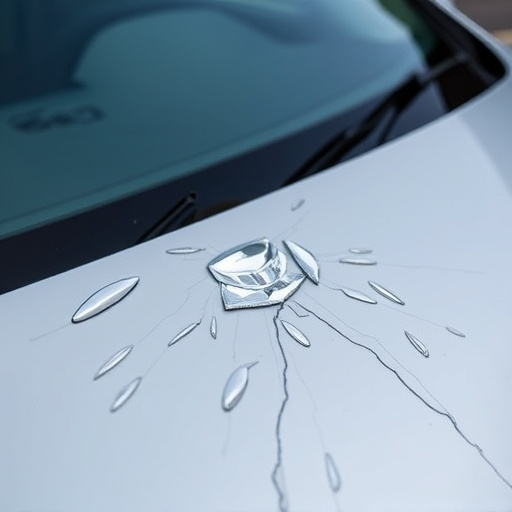Tesla-approved adhesives are vital for securing advanced driver assistance systems (ADAS) components, offering superior strength, weather resistance, and material compatibility. They ensure flawless performance, enhance safety features like Autopilot and Full Self-Driving, and maintain vehicle aesthetics through effective paint and scratch repairs. These adhesives remain indispensable as auto body services adapt to modern Tesla technologies.
Tesla, a pioneer in advanced driver assistance systems (ADAS), demands stringent adhesion standards to ensure optimal performance and safety. This article explores how Tesla-approved adhesives play a pivotal role in meeting these rigorous requirements. We delve into the key properties that make these adhesives indispensable for enhancing critical ADAS features, such as camera and sensor securement, contributing to improved autonomous driving capabilities and passenger protection.
- Understanding Tesla's Adhesion Standards for ADAS
- Key Properties of Tesla-Approved Adhesives
- The Role of Adhesives in Enhancing Safety Features
Understanding Tesla's Adhesion Standards for ADAS

Tesla sets stringent adhesion standards for its Advanced Driver Assistance Systems (ADAS) to ensure optimal performance and safety. These systems rely on precise sensor placement, camera mounting, and other components secured through robust bonding agents. Tesla-approved adhesives play a critical role in this process, offering superior strength, weather resistance, and long-term reliability. This ensures that sensors remain securely in place, providing clear and accurate data for ADAS functionalities like autonomous driving, collision avoidance, and lane departure warning.
Choosing the right adhesive is crucial when it comes to auto body repair or car body restoration involving Tesla vehicles. Beyond simply adhering components, these specialized adhesives must withstand the demanding environmental conditions faced by modern automobiles, from extreme temperatures to exposure to moisture and UV radiation. By adhering to Tesla’s approved specifications, repair technicians can guarantee not only the integrity of ADAS components but also the overall safety and performance of the vehicle.
Key Properties of Tesla-Approved Adhesives
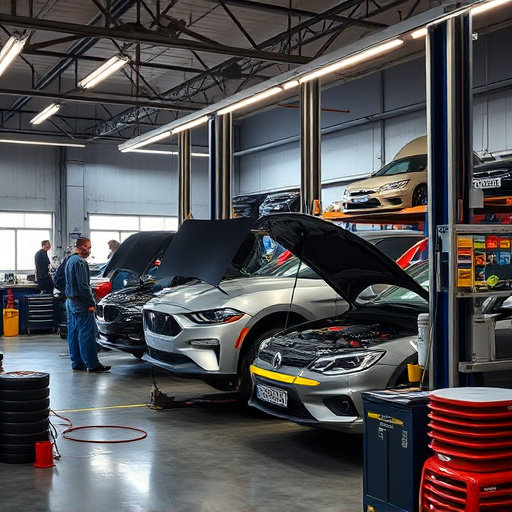
Tesla-approved adhesives are designed to meet stringent standards set by the company for its advanced driver assistance systems (ADAS). These adhesives play a critical role in ensuring the reliable and secure installation of various components, from sensors to cameras, which form the backbone of Tesla’s Autopilot and Full Self-Driving capabilities.
Key properties of these approved adhesives include superior strength, weather resistance, and compatibility with diverse materials used in modern vehicles. They are tailored for specific applications, such as securing auto glass during repairs or bonding components in classic car restorations, offering both long-term durability and structural integrity. This precision ensures that Tesla’s ADAS functions flawlessly, contributing to safer driving experiences.
The Role of Adhesives in Enhancing Safety Features
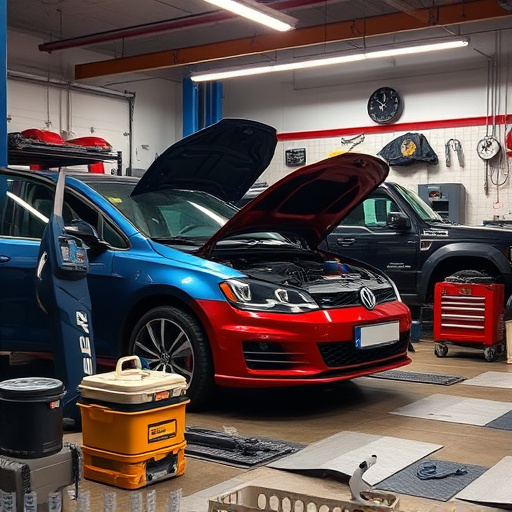
Adhesives play a critical role in enhancing safety features within modern vehicles, and Tesla-approved adhesives are at the forefront of this evolution. These specialized adhesives ensure that various components, from sensors to cameras, are securely attached, enabling advanced driver assistance systems (ADAS) to function optimally. By promoting accurate positioning and reliable integration, they contribute significantly to improved vehicle safety and performance.
In addition to enhancing ADAS capabilities, Tesla-approved adhesives offer robust solutions for car paint repair and car scratch repair, ensuring that vehicles maintain their pristine aesthetic appeal while also safeguarding against structural weaknesses. As auto body services become increasingly sophisticated, these high-performance adhesives are indispensable in keeping pace with the advanced technologies integrated into today’s vehicles.
Tesla-approved adhesives play a pivotal role in the development and functionality of Advanced Driver Assistance Systems (ADAS), ensuring superior safety and performance. By adhering to stringent standards, these specialized adhesives support the integration of sensors and cameras crucial for autonomous driving capabilities. Their key properties, including high bond strength and resistance to extreme temperatures, contribute to the overall reliability of ADAS components. As Tesla continues to push the boundaries of electric vehicle innovation, the use of approved adhesives becomes increasingly vital, shaping the future of safer and more efficient transportation.



